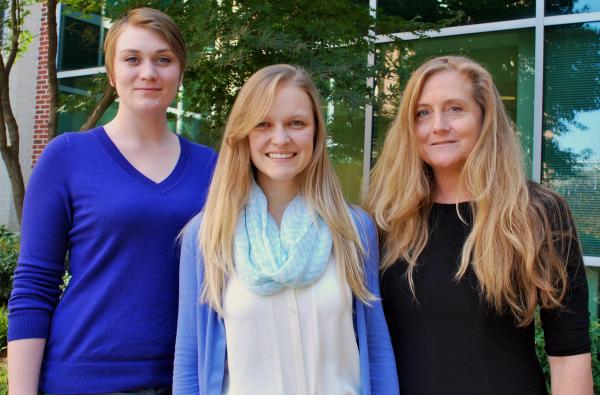A new version of the Coulter Translational Partnership (CTP) at Emory and the Georgia Institute of Technology is putting an even greater emphasis on the “translational” part of its name. That was the basic message delivered by Rachael Hagan, director of the CTP, at an open-house re-introduction of the program last Tuesday.
The program, funded by the Wallace H. Coulter Foundation, which historically has awarded grants to help move the most promising technologies into commercial development and clinical practice, will continue to do so, but the focus now will be on ideas that are closest to leaving the bench and reaching the bedside.
“I’ve had a Coulter grant in the past, and it is vastly different now than what it was before,” says Tom Barker, associate professor in the Wallace H. Coulter Department of Biomedical Engineering (BME), an Emory/Georgia Tech collaborative endeavor that was the first institution to receive the Coulter Translational Partnership Award, back in 2000. “We need to reset our mindset about the program. This award is not about research grants. It’s more like a pre-venture fund. And they’ve got the right person driving home the idea that this is for products that can be rapidly translated.”
That person is Hagan, who adds, “our researchers will notice that when the selection of funded projects does happen, we’re going to be much more serious about proof of concept.”
In the past, earlier phases of research in a project had received funding, but the emphasis always has been, ultimately, on commercialization.
“That’s always been an expectation of the Coulter Foundation,” notes Regents’ Professor Ajit Yoganathan, associate chair for translational research at BME, where he also holds the title of Coulter Distinguished Faculty Chair. “The main thing to remember is, this is not a grant program. This is not a research program, and you can’t really come in with that in mind. This is funding to commercialize intellectual properties, and there are stringent timeline involved. The funding is there to assist people in keeping those timelines.”
This Emory/GT translational partnership is one of 15 CTPs at universities around the country, including the University of Washington-Seattle, where Hagan was the program director for eight years before coming to Atlanta to revive the initiative here. The program now has three people staffing it – Hagan and two program managers, Shawna Hagen and Katie Merritt. And Hagan says the partnership offers invaluable intellectual capital as well – consultants who can help put the business and financial pieces together as technologies morph from final concept to commercialization.
“The re-launch of the Coulter program is a unique opportunity for investigators in the Georgia Tech-Emory community,” says Johnna Temenoff, BME associate professor and co-director of the Center for Regenerative Engineering and Medicine. “The fact that the program is committed to finding consultants from both inside and outside the Atlanta community to provide the best advice to prepare investigators to garner external start-up funds is an extremely valuable aspect of this program.”
The road to clinical and commercial success begins with ideas, and there a few important dates to remember: Project pre-proposals are due on January 31, 2015, and the funds will be released on July 1st. Researchers interested in funding through the Emory/Georgia Tech Coulter Translational Partnership can find out more at the CTP website.
Media Contact
Jerry Grillo
Communications Officer II
Parker H. Petit Institute for
Bioengineering and Bioscience
Keywords
Latest BME News
Jo honored for his impact on science and mentorship
The department rises to the top in biomedical engineering programs for undergraduate education.
Commercialization program in Coulter BME announces project teams who will receive support to get their research to market.
Courses in the Wallace H. Coulter Department of Biomedical Engineering are being reformatted to incorporate AI and machine learning so students are prepared for a data-driven biotech sector.
Influenced by her mother's journey in engineering, Sriya Surapaneni hopes to inspire other young women in the field.
Coulter BME Professor Earns Tenure, Eyes Future of Innovation in Health and Medicine
The grant will fund the development of cutting-edge technology that could detect colorectal cancer through a simple breath test
The surgical support device landed Coulter BME its 4th consecutive win for the College of Engineering competition.








